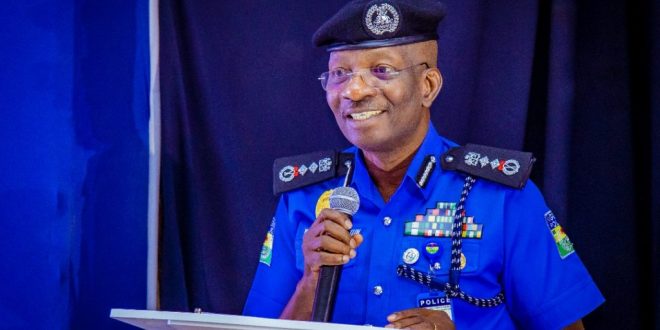•
*Extortion Incident*: Officers from Zone 16 Zonal Headquarters in Yenagoa, Bayelsa State, were involved in an extortion incident amounting to 10 million Naira.
*Consequences*: The implicated officers have been detained, and the sum has been recovered.
*Reporting Unethical Behavior*: The IGP has once again said that Citizens are urged to report any unethical behavior by police officers through various channels, including helplines, social media, email, and the official website. That challenge must be taken up. However, what is also due to state commands, Divisions and police posts should also get to them fully, and timely too. Police budgets must start from the village level to the state headquarters /Zonal commands accordingly.
This directive from IGP Kayode Adeolu Egbetokun against police extortion is a significant step towards addressing corruption within the Nigeria Police Force.
However, several underlying issues contribute to the persistence of such unethical behavior:
1. *Poor Remuneration and Retirement Benefits*: Many police officers in Nigeria face inadequate salaries and poor retirement benefits, which can drive them to seek additional income through corrupt practices. Improving the financial compensation and retirement packages for officers could reduce the temptation to engage in extortion and other forms of corruption.
2. *Lack of Accountability Among Senior Officers*: While senior officers may not condone corrupt activities, their failure to actively prevent and punish such behavior allows it to continue. Therefore, strengthening internal oversight and ensuring that senior officers are held accountable for the actions of their subordinates has become crucial.
3. *Adhoc Units and Illegal Duties*: The establishment of adhoc units often leads to a lack of proper oversight and accountability, enabling these units to engage in illegal activities. Regular audits and clear mandates for these units such as rules of engagement and code of operational conduct can help curb such practices.
4. *Insufficient Enforcement of Directives*: Despite directives from senior officials and efforts by the Force Public Relations Officer (FPRO), there is often a gap between policy and practice. Ensuring that directives are enforced consistently and that there are tangible consequences for non-compliance is not only essential but must be the new modus operandi if the IGP’s vision for the police must be brought to reality .
5. *Public Reporting and Transparency*: The IGP Encouraging citizens to report unethical behavior and ensuring that these reports are taken seriously can help build public trust. Transparent handling of complaints and visible actions against corrupt officers will demonstrate the police force’s commitment to reform.
Addressing these issues requires a comprehensive approach that includes better remuneration not only to the Area Command or Divisional headquarters, but also down to the Village Police posts level. This must be coupled with stricter accountability measures, (this can be by enabling the Force Provost Marshall as the police internal affairs department fully equipped to tackle strong officers) effective oversight of adhoc units, consistent enforcement of anti-corruption directives, and active public engagement. By tackling these root causes, the Nigeria Police Force can make significant strides towards reducing corruption and improving its public image.
If this is not done, sooner rather than later, the alternative will be that an external body will be set up either by the PSC or even the government pulling the Provost out of the police to effectively do their job.
 Hottestgistnaija.com
Hottestgistnaija.com





